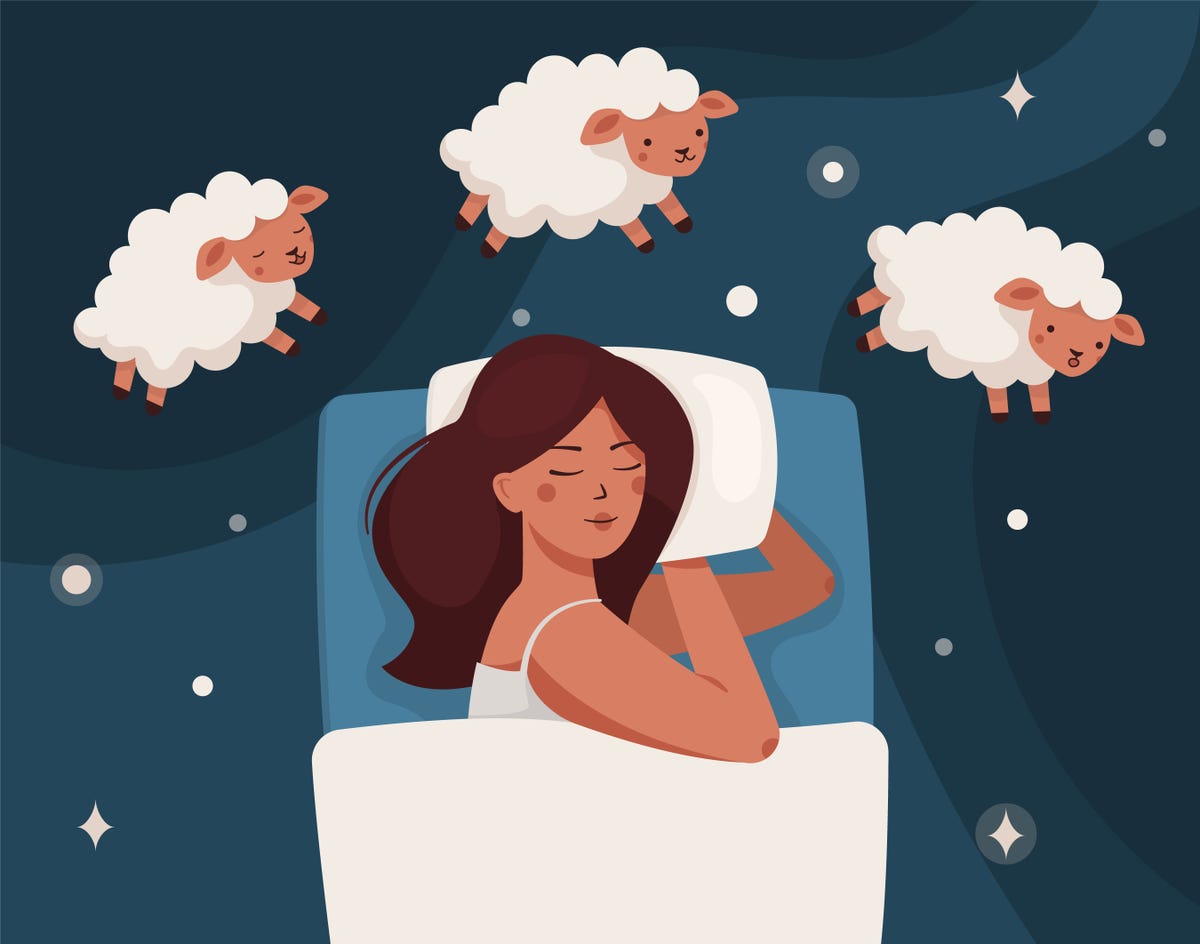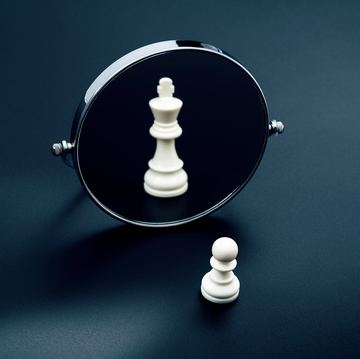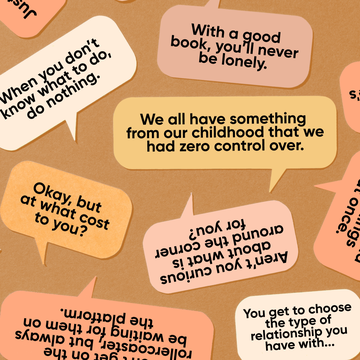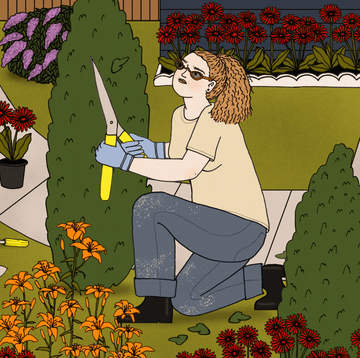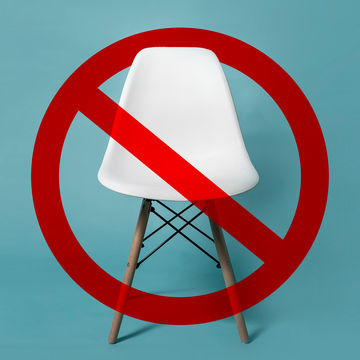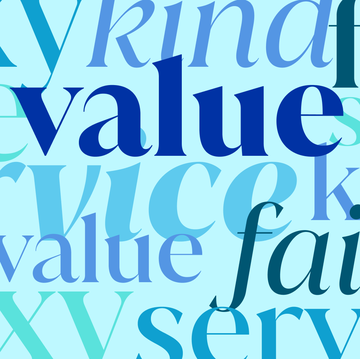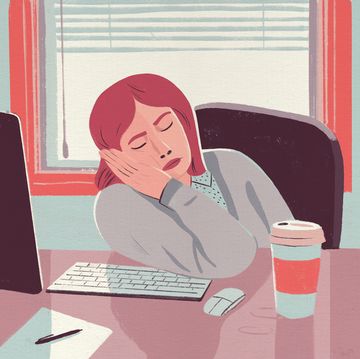In the quest for well-being, sleep is nonnegotiable. “It’s a critical health process,” says Aric Prather, PhD, a psychologist and sleep scientist at the University of California, San Francisco, and author of the new book The Sleep Prescription. “If you carve out time for it, you’ll be more efficient, you’ll be more creative, you’ll be a better partner and a better parent.” And yet, we constantly sacrifice our restorative slumber to answer one more email or watch one more episode. Does this mean we’re doomed? Nope, say the experts—not with these smart workarounds:
Focus on wake time instead of bedtime
Paradigm shift! A good night’s sleep actually starts first thing in the morning. “Our wake-up time is the single most important cue for setting our internal biological clocks, also known as our circadian rhythm,” says Wendy M. Troxel, PhD, a senior behavioral scientist at RAND corporation and the author of Sharing the Covers: Every Couples’ Guide to Better Sleep. The theory is that if you stick to a consistent wake-up time, you’ll get sleepy around the same time each night, thus creating a strong, natural routine. The catch is that ideally it’s the same time seven days a week, including weekends, since “people who have erratic wake-up times generally have poor sleep quality and trouble falling asleep,” says Troxel. But since rising at 6 a.m. on Saturday is just cruel (especially if you don't have a toddler staring you down from the side of the bed), Troxel allows some wiggle room. Just aim for within two hours of your weekday time to preserve the rhythm. And for those glorious nights you go out and stay out way too late? YOLO. “It’s what makes life worth living,” says Prather. You’re resilient. A few off nights won’t do you in.
Keep that TV in your bedroom
If an episode of Selling Sunset lulls you to sleep, so be it. Any wind-down ritual that helps you decompress and shake off the day before your head hits the pillow is legit, so figure out which low-arousal activity works for you, whether reading a book, listening to a podcast, taking a bath, or watching TV. (The experts are right about social media, though. Skip it.) While Prather likes rewatching sitcoms like The Office (“You don’t need to know what happens next. It’s engaging, but not so much that you’re going to binge”), Jade Wu, PhD, a sleep psychologist and researcher at Duke University School of Medicine, prefers to read murder mysteries and watch action movies. “It takes my mind off the other stuff that would be churning otherwise,” she says. “Instead of worrying about my finances, for example, I’ll watch 007.” Stressed you’ll get revved up? Don’t be. A recent study published in the February 2023 issue of Sleep Medicine finds that watching suspenseful series and cliffhangers at bedtime has minor effects on sleep. “There is no one-size-fits-all rule,” says Wu. “Know thyself and know what works for you.” One tip for your Hulu habit: Keep the lights low. Under darkness, our brains start releasing melatonin, the hormone that kick-starts sleep.
More From Oprah Daily

Be as cool or cozy as you like
To find your sleep temperature sweet spot, experimenting with layers is the way to go, since research shows that ideally, you want the ambient temperature to be cooler than your personal temperature—a figure that can vary wildly. Ultimately, though, you just want to be comfortable, science be damned. “I run cold, and I can’t imagine putting my room to 65 degrees,” says Wu. “My house is set to 72, and I sleep totally fine.” Instead of following a specific number, Wu recommends just going by your feeling. “Your body has very sophisticated set of sensors that will tell you if you’re too cold or too hot,” she says. “So if you feel too hot, take off layers or set your room colder. If you feel cold, put on layers or set the room warmer.”
Scrap the bedside “worry” notepad
Stress has a sneaky way of tapping you on the shoulder in the middle of the night. And in the blink of an eye, you’re lying there thinking about bills, the appointments you forgot to make, that embarrassing thing you said at the office, what’s inside black holes…or hello, that you're not sleeping and tomorrow is going to be a disaster. We’ve all heard the tip about keeping a pad on your nightstand, sitting up, and jotting down your angst in the moment. Instead, Prather teaches patients in his clinic a tactic called “scheduled worry.” It’s exactly what it sounds like: putting time on your calendar during the day to just stress. “You take 15 to 20 mins and write down all the things you’re worried about,” he says. “Then, when you wake up in the middle of the night, you can remind yourself, Look, I already worried about this when I was better suited to do it. And I have it scheduled again for tomorrow.” The process is really helpful for people to let go.
Enjoy that glass of wine
Just sip it on the earlier side. “We like to think of alcohol as a sleep-inducing nightcap, but it can disturb sleep, particularly REM sleep, which is really important for memory, learning, and emotional processing,” says Troxel. However, if you enjoy some Pinot Noir (hand raised) and have a generally healthy sleep routine, don’t deprive yourself. Have a little before or with dinner rather than on the sofa after.
Forget the idea of sleep rules, period
Making sleep a priority paves the way to better health. But obsessing about it doesn’t do you any favors, because that’s when problems like insomnia arise. “Don’t put so much pressure on sleep,” says Troxel. “Just set the stage so that most nights are predictably going to be a good night of sleep and you aren’t going to be stressed about it.” Wu concurs. Her advice: Adopt a more accepting attitude toward sleep. “When you’re not sleepy, don’t force it,” she says. “Maybe your body isn’t sleepy right now, and that’s okay. Instead do something fun. Grab a good book or watch a movie, and make the most of your awake time.”
